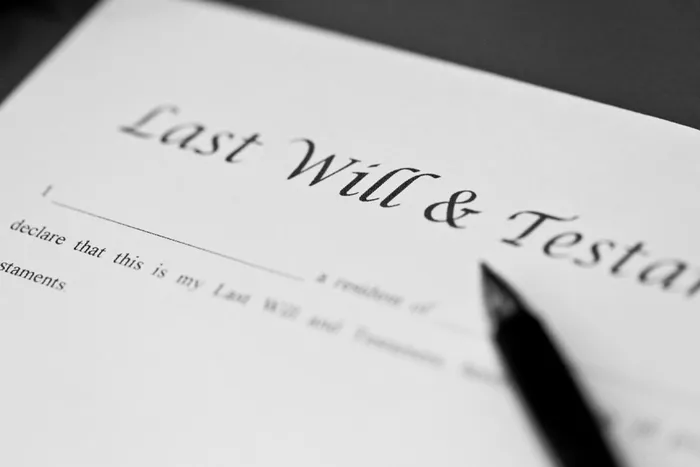
Explore how to effectively structure your life insurance policies to minimise estate duty and protect your legacy. This guide outlines essential strategies for ensuring your loved ones benefit from your estate without unnecessary financial burdens.
Image: File
Life insurance can be an excellent estate planning tool to ensure succession, provide for loved ones, and create liquidity in your estate. However, understanding the estate duty implications of life assurance policies is critical, as incorrect structuring can have severe consequences for your estate and beneficiaries.
Section 4(q) deduction: In terms of section 4(q) of the Estate Duty Act, the value of all property accruing to the surviving spouse is deductible from the gross estate of the deceased. This applies whether the surviving spouse inherits through testate or intestate succession and includes the proceeds of any domestic life policy where the surviving spouse is the named beneficiary. These proceeds are paid directly to the surviving spouse, and therefore do not attract estate duty or executor’s fees. The definition of ‘spouse’ includes a permanent life partner and is not limited to a legal spouse in terms of the Marriage Act or the Civil Union Act.
Policies registered under an ante- or post-nuptial contract: Where a domestic life policy is registered under an ante-nuptial or post-nuptial contract, and the nominated beneficiaries are the spouse and/or children, the proceeds do not form part of the deceased’s dutiable estate, and no estate duty or executor’s fees are payable on the proceeds. As such policies are registered against the couple’s marriage contract, this exemption applies only where the couple is legally married in terms of the Marriage Act or the Civil Union Act.
Policies owned and paid for by a third party: Where a life policy is owned and paid for by a third party, section 3(3)(a) of the Estate Duty Act allows for certain deductions. For example, if a son takes out a policy on his father’s life and is both the owner and payer of the policy as well as the nominated beneficiary, the proceeds will be considered deemed property in the father’s estate upon death, reduced by the total premiums paid by the son, compounded annually at 6%.
Buy-and-sell assurance: The proceeds of qualifying buy-and-sell policies are not considered deemed property in a deceased estate. To qualify, the policy must be taken out by a person who, at the time of death, is a co-owner of a business with the deceased. It must be specifically intended to fund the purchase of the deceased’s business interest, and the premiums must not have been paid by the deceased.
Key person assurance: Key person insurance is designed to protect a business from the financial impact of losing a key employee. To ensure the proceeds are exempt from estate duty, the policy must be correctly structured: the company must own the policy, pay the premiums, and be the nominated beneficiary. Additionally, the company must not be a ‘family company’ in relation to the life assured. If correctly structured, the proceeds are paid directly to the company and are not dutiable in the deceased’s estate.
Endowment policies: Endowment policies owned by the deceased that do not pay out on death are included as property in the estate. This applies to both local and offshore endowments, with the surrender value forming part of the estate.
South Africans living abroad: If a South African citizen is living abroad at the time of death, the proceeds of any South African life policy are included in their deceased estate, unless an exclusion applies. For example, if the policy is registered under an antenuptial contract in favour of the surviving spouse, the proceeds will be exempt. However, if the estate is the nominated beneficiary, the proceeds will attract estate duty.
Policies where the estate is the nominated beneficiary: Life policies can create liquidity in an estate to provide for dependants or settle debts. In these cases, the estate is nominated as the beneficiary, meaning the proceeds will form part of the dutiable estate. When calculating liquidity needs, remember to factor in the estate duty payable on such proceeds. The treatment of these proceeds depends on your marital regime:
Life insurance is a powerful estate planning tool, but its value lies in correct structuring. Poorly structured policies can lead to unnecessary estate duty, reduced liquidity, and financial strain for your beneficiaries. Your adviser should regularly review:
As part of your annual financial review, revisit your life policies to ensure they are fit for purpose. The right structure can save your estate significant costs and ensure that the people you intend to benefit do so without unnecessary delays or deductions.
* Tapfuma is a Certified Financial Planner professional at Crue Invest.
PERSONAL FINANCE